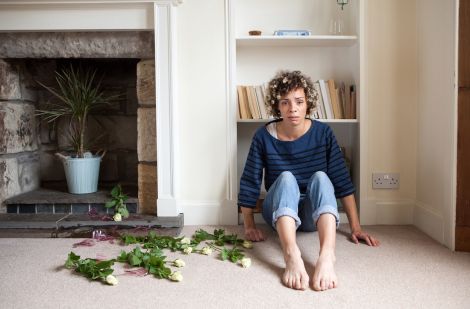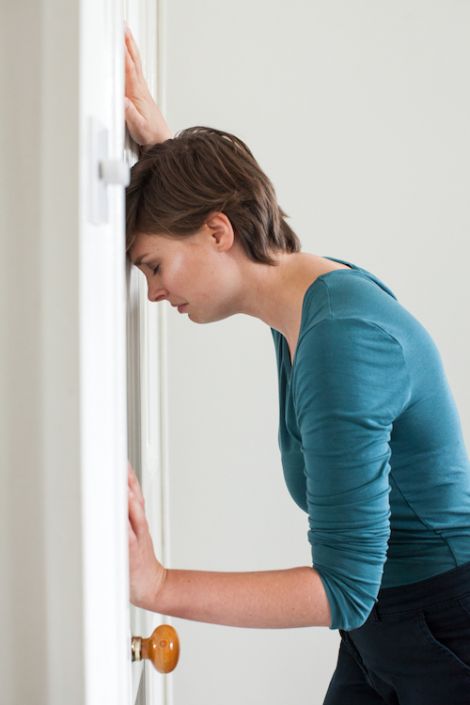News / ‘Shame made me keep quiet’, says survivor
DOMESTIC abuse can take many forms other than physical violence of men against women – a fact recognised by the recent domestic abuse bill, which for the first time makes psychological abuse and coercive control in the home a criminal offence in Scotland.
In the week of International Women’s Day on Thursday, Shetland News publishes a number of articles giving survivors of domestic abuse a voice, while also highlighting the work of charities such as Women’s Aid.
Julie – not her real name – is still surprised at what has happened to her. The 30-something, “has always regarded herself as strong and independently minded”, at the time she had a desperate need to “settle down and have a family” and believes this vulnerability was what was taken advantage of.
Following a “whirlwind romance” Julie quickly came to believe she had found the soulmate she had been looking for.
He proposed after just two and a half months, and although Julie was “a little hesitant” they got married soon afterwards.
Today, and with hindsight, Julie says that as early as the night of her wedding she realised that she had made a “big mistake”.
As soon as the wedding was over her husband – we will refer to him as Paul – started behaving coldly and distantly towards her, started to criticise and ultimately control her.
“We were now married, but things were not as they should be,” Julie recalls. “He withheld sex completely, and he wouldn’t talk about it; he wasn’t allowing any sort of physical contact at all, always gave excuses. He was cold and was pushing me away.
“It was difficult for me and I didn’t know how to cope with it. He refused to speak to me about it and would get angry. I cried a lot for a long time.
Become a member of Shetland News
“He was withholding intimacy, and as a result I was losing confidence in myself.”
Things were to get worse as frustrations escalated into arguments, which from time to time became physical.
“We ended up on the ground with his arm over my neck. He was much stronger than me, and I realised that I couldn’t get him off,” she recalls.
“It was the first time that I was scared, because I realised I couldn’t do anything against him. Eventually he let me go, and I couldn’t breathe for a while.”
However, he apologised the next morning and agreed that counselling would be the right way forward. For a time, it looked as though the couple were getting closer again, but it didn’t last for long.
“There was no physical contact, no intimacy of any kind, and as far as he was concerned there wasn’t a problem either.
“He made me feel I wasn’t good enough. He was charming in public, but when we were home he was cold, and I guess I thought that was my fault somehow. Life was like walking on eggshells.”
‘I felt unloved and unworthy’
She recalls further events which eventually led to her seeking professional help, packing her bag and leaving.
“At home things were deteriorating again, we were arguing, and arguments would become physical,” she says.
“On one occasion he flung a knife towards my face and pretended he would be stabbing me.”
“I never thought I would end up in an abusive relationship, I never expected it to happen to me. I was in denial a lot, I didn’t want to believe it was happening to me.”
It was thanks to friends and family noticing her lack of vitality, smiles and sense of self-worth, that Julie started talking about her experiences and slowly came to realise how she had become a shadow of her former self. Her family helped her to remember who she was and process what was happening to her.
“I was able to be honest with them,” she says, adding that they supported her to seek help from Shetland Women’s Aid, who helped her to risk assess, safety plan and make a safe escape.
“I kept making excuses for him and his own issues and troubles. I kept a lot of things quiet and hidden for ages, because I was so ashamed that I had allowed myself to make such a bad decision, and that shame made me keep quiet.
“I hadn’t told anybody about the moment when he had me on the floor and was over my neck; no one knew what was going on.”
‘Don’t allow your abuser to isolate you’
“If I had been speaking to people and had been more honest about what was going on, maybe I would have had the support and therefore the strength to seek help sooner,” she reflects.
Julie is clear in her advice to other women who feel abused in their relationships – be it emotionally, financially or violently.
“It’s so important not to keep it hidden, because you can explain things away in your head and make excuses that in a twisted way can make sense. Don’t allow your abuser to isolate you,” she says.
“When you get outside help and advice, they can help you to understand how it really is – without the emotions, without the shame, and without the guilt.”
Shetland Women’s Aid office manager Laura Stronach and her team currently look after almost 100 women and children recovering and moving on from various forms of domestic abuse, family breakdown and historical childhood sexual abuse.
And as this case demonstrates, domestic abuse is a complex issue that includes everything from emotional control to physical violence.
Stronach said: “Everyone’s experience is unique but there are patterns of behaviour which can build a picture of abuse and control which are now a criminal offence.
“We want women to know that this is not ok, and that help is available. We can give women some space, time and support to risk assess, safety plan and in some cases, not all, manage to leave an abusive relationship or partner who can not recognise there is a problem and will not change.
“Some women choose to report and often they don’t. We can support women in whatever choices they make.”
Scottish Women’s Aid helpline is available 24 hours on 0800 027 1234. Shetland Women’s Aid can be contacted on telephone 01595 692070 or e-mail office@shetlandwa.org. They can also be contacted via Facebook.
One thousand words is a creative project by Zero Tolerance and Scottish Women’s Aid in collaboration with survivors of domestic abuse. The project is a collection of 15 powerful photos of models taken by acclaimed photographer and storyteller Laura Dodsworth based on the words and experiences of women who have lived through domestic abuse.
Contrary to most depictions of domestic abuse the images do not show bruises, or physical violence. Inspired by Scotland’s new Domestic Abuse Bill, these images are raising awareness that domestic abuse is far more than physical violence.
Become a member of Shetland News
Shetland News is asking its readers to consider paying for membership to get additional perks:
- Removal of third-party ads;
- Bookmark posts to read later;
- Exclusive curated weekly newsletter;
- Hide membership messages;
- Comments open for discussion.
If you appreciate what we do and feel strongly about impartial local journalism, then please become a member of Shetland News by either making a single payment, or setting up a monthly, quarterly or yearly subscription.




























































